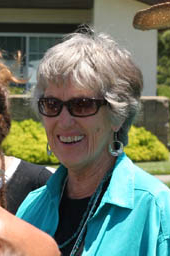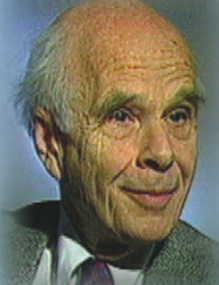A Quote by Joanna Macy
Confirming an intuitive sense I've always felt for the interconnectedness of all things, this doctrine has provided me ways to understand the intricate web of co-arising that links one being with all other beings, and to apprehend the reciprocities between thought and action, self and universe.
Related Quotes
We are beginning to see the entire universe as a holographically interlinked network of energy and information, organically whole and self referential at all scales of its existence. We, and all things in the universe, are non-locally connected with each other and with all other things in ways that are unfettered by the hitherto known limitations of space and time.
Some gentlemen have made an amazing figure in literature by general discontent with the universe as a trap of dulness into which their great souls have fallen by mistake; but the sense of a stupendous self and an insignificant world may have its consolations. Lydgate's discontent was much harder to bear; it was the sense that there was a grand existence in thought and effective action lying around him, while his self was being narrowed into the miserable isolation of egoistic fears, and vulgar anxieties for events that might allay such fears.
The indigenous understanding has its basis of spirituality in a recognition of the interconnectedness and interdependence of all living things, a holistic and balanced view of the world. All things are bound together. All things connect. What happens to the Earth happens to the children of the earth. Humankind has not woven the web of life; we are but one thread. Whatever we do to the web, we do to ourselves.
Love is the felt experience of connection to another being. An economist says 'more for you is less for me.' But the lover knows that more of you is more for me too. If you love somebody their happiness is your happiness. Their pain is your pain. Your sense of self expands to include other beings. This shift of consciousness is universal in everybody, 99% and 1%.
It is important to understand what I mean by semiosis. All dynamic action, or action of brute force, physical or psychical, either takes place between two subjects, whether they react equally upon each other, or one is agent and the other patient, entirely or partially, or at any rate is a resultant of such actions between pairs. But by "semiosis" I mean, on the contrary, an action, or influence, which is, or involves, a cooperation of three subjects, such as a sign, its object, and its interpretant, this tri-relative influence not being in any way resolvable into actions between pairs.
More than his exterior hit me. I felt warm and safe just being with him. He brought comfort after my terrible day. So often with other people I felt a need to be center of attention, to be funny and always have something clever to say. It was a habit I needed to shake. But with him I never felt like I had to be anything more than what I already was. I didn’t have to entertain him or think up jokes or even flirt. It was enough to just be together, to be so completely comfortable in each other’s presence—we lost all sense of self-consciousness.
The vigor of a mass movement stems from the propensity of its followers for united action and self-sacrifice. When we ascribe the success of a movement to its faith, doctrine, propaganda, leadership, ruthlessness and so on, we are but referring to instruments of unification and to means used to inculcate a readiness for self-sacrifice. It is perhaps impossible to understand the nature of a mass movement unless it is recognized that their chief preoccupation is to foster, perfect and perpetuate a facility for united action and self-sacrifice.


































